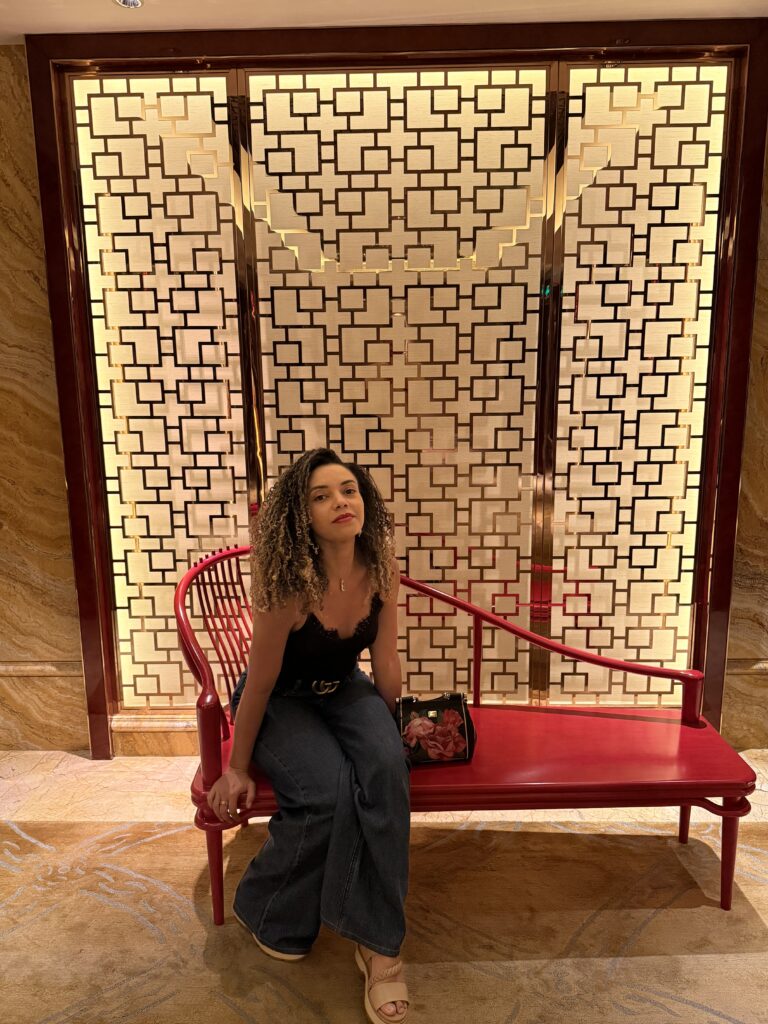I am Luciana. I am from Brazil, and I moved to the U.S. at 24 in search of continuing my education and connecting with the world.
My pronouns are she/her. I was born in Bahia, home to the largest Black population outside of Africa. Much of what I call my baiana culture has Yoruba origins, as my home state was, for hundreds of years, the main arrival port and settlement for the Black Africans trafficked to the Americas by the Portuguese. I identify as a Latina of African descent—something that surprises many who have been sold the myth that Brazil is a country of European heritage alone.
I was born into a low-income family in a midsize city in Bahia. My parents had three daughters, and I am the middle child. But like many modern families, things shifted—my parents separated, and today, I have six siblings. My grandparents were illiterate; my parents only studied until middle school. I watched my mother return to finish high school and earn a nursing technician certificate when I was a teen. My father is now in his second year of high school. Two of my four grandparents learned to sign their names and read after age 50.
I am not only the first in my family to attend college — I am the only one among my siblings to do so.
Like many immigrants, I arrived in the U.S. full of fear and uncertainty. It took me 11 years to get back to school, but that’s not a story of delay—it’s a story of conquering a dream. In those years, I built a life. I traveled the world. I learned a third language, Spanish. I established my financial independence and I building a career. Today, I work full-time while attending City College as a part-time student, taking night classes.
I once dreamed of being a full-time student, fully immersed in academia. But even during my first attempt at earning a bachelor’s degree—16 years ago in Brazil—I knew that if I ever wanted a degree, I would have to work for it. That meant my path would take longer than most. And that’s okay.
I am a heterosexual woman who has, more than once, wished she were gay. Growing up with sisters and a close-knit group of female friends has made me hesitant to hold men in the same high regard.
I was raised in a fundamentalist church, but as soon as I found intellectual independence, I left religion behind. Luckily, my family always respected our autonomy—they never excluded or punished us for thinking differently.
As I learn about personality in this course, I reflect on the many versions of myself I have been—how I have shifted, adapted, and sometimes fought against the mold I was expected to fit into. Life has reshaped me over and over again, and yet, I remain intent on breaking through whatever data would predict for me.
That is my radical honesty.
Luciana <3



